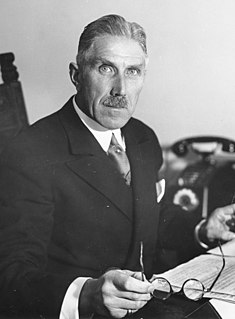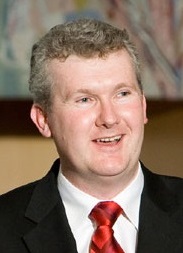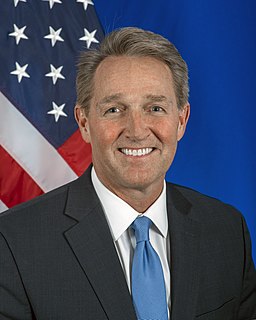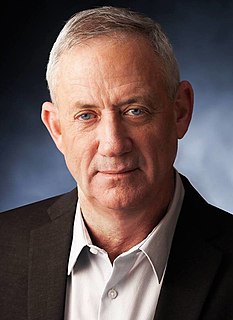A Quote by Franz von Papen
It is conceivable that a party might gain the majority in parliament and claims the government for itself.
Quote Topics
Related Quotes
No doubt, you've got a parliament now - I mean, Malcolm Turnbull says he'll work with the parliament he's got. He's got a parliament where a majority of the members of parliament want that law to be changed. He's got a parliament where there's a majority in each House who have publicly said they want to have a Royal Commission into banks.
Democracy is essentially a means, a utilitarian device for safeguarding internal peace and individual freedom. As such it is by no means infallible or certain. Nor must we forget that there has often been much more cultural and spiritual freedom under an autocratic rule than under some democracies and it is at least conceivable that under the government of a very homogeneous and doctrinaire majority democratic government might be as oppressive as the worst dictatorship.
[The Republican Party] for example, they do run the House of Representatives, they're a majority there, and it's the House that is essentially sending the government into shutdown and maybe default. But they won the majority of seats there because of various kinds of chicanery. They got a minority of the votes, but a majority of the seats, and they're using them to press forward an agenda which is extremely harmful to the public.
You cannot choose between party government and Parliamentary government. I say, you can have no Parliamentary government if you have no party government; and, therefore, when gentlemen denounce party government, they strike at the scheme of government which, in my opinion, has made this country great, and which I hope will keep it great.
I think the Respublican party's lost its way. We have given into nativism and protectionism. And I think that, if we're going to be a governing party in the future, and a majority party, we have got to go back to traditional conservatism, limited government, economic freedom, individual responsibility, respect for free trade. Those are the principles that made us who we are.
It's very rare to find a place where news itself has a political bent. Normally, let's say in the U.K. for instance, newspapers might explicitly support one party or the other, but television is just straight-up facts that are not influenced by any party from either side. In South Africa we try to maintain the same thing. Unfortunately, the government sometimes intervenes, but for the most part, the facts are the facts.
It's counterintuitive, but the most divisive arrangement is when the same party controls both Congress and the presidency, a situation encountered in eight of the past 10 years. With government unified under a single party, the minority has the least possible incentive to cooperate with the majority.


































